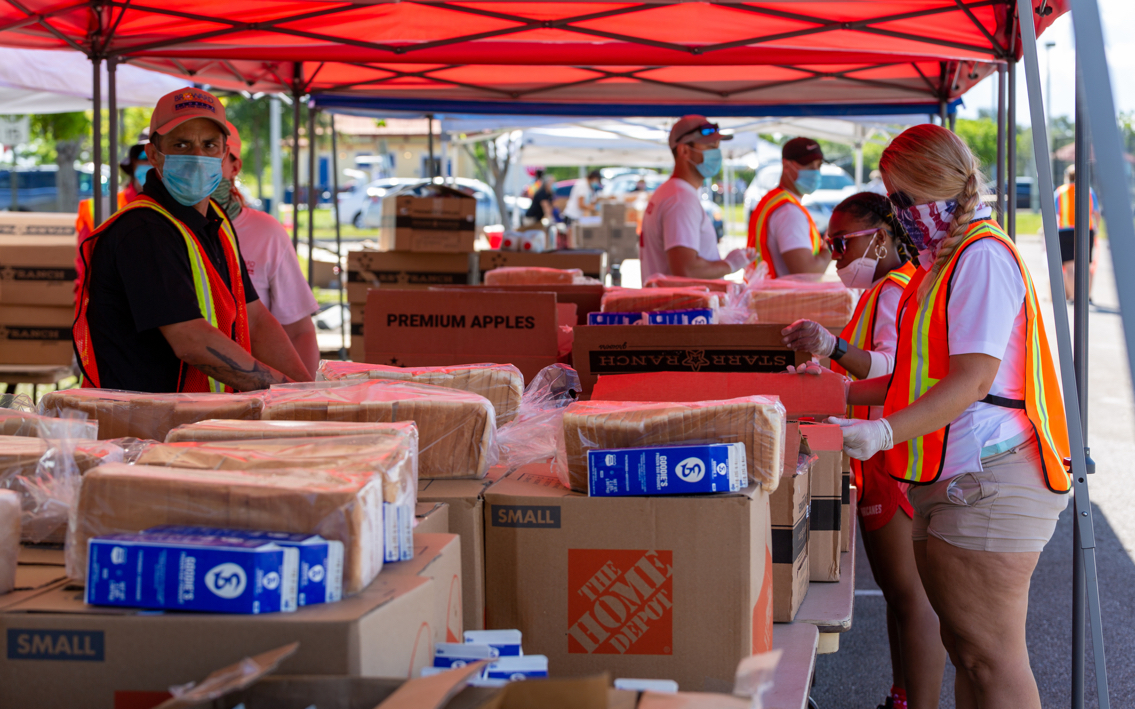Let’s think back to late February or early March. Maybe there was a day when Milan, Italy became a leading news item for you. Or it was a different headline. COVID-19 started taking over the news, but it was mostly focused on the moment, on pantry loading and stockpiling toilet paper or yeast.
Since then, we’ve kept an eye on stats like positive cases, deaths and recoveries. We’ve debated the merits of shelter-in-place and how and when to re-open. All the while, there have been a series of trade-offs being made at every level of society—city, state, regional, national and global. And ultimately, personal.
How does staying isolated at home affect domestic violence and child abuse? How well are students learning remotely, in particular younger ages and those without adequate technology tools? In early July, the American Academy of Pediatrics cited numerous advantages of returning physically to school — social and emotional skills, healthy meals and exercise, mental health support and more. And yet, with the first days of schools approaching right now, some teachers are worried about getting COVID-19 from their students or sending it from school back home to student families (or bringing it home to their own).
This idea of trade-offs — of hoping to reduce risk on one hand while accepting it on another — comes into play on a global scale in terms hunger and famine.
On April 21st, David Beasley, executive director of the UN World Food Programme (WFP) addressed the UN Security Council saying “we’re on the brink of a hunger pandemic.” He added, “We could be facing famines of biblical proportions.”
On May 12th, Beasely’s colleague at the WFP Arif Husain—chief economist and director of research, assessment and monitoring—expanded on the point. He said, “The number of people who are classified as having acute food insecurity—a level of hunger at which a person’s inability to consume adequate food endangers their life or livelihood—could rise from more than a 130 million to nearly 300 million, owing to the coronavirus pandemic, which has brought world economies and supply chains to a standstill.”
Previously on this blog, I’ve made the point that in a sophisticated global economy small changes can have dramatic implications. The supply chain disruptions and massive famine due to the COVID-19 pandemic are global problems and will have consequences here in the U.S. as well.
As U.S. News noted earlier this summer, “In April, about 41 percent of mothers with children under 13 reported recent food insecurity, the highest level since at least 2001, according to an analysis of survey data from the Brookings Institution.” More recently, the Wall Street Journal reported that Feeding America has distributed 1.9 billion meals since March, which is 50 percent more than normal. The group projects a demand for 14 billion meals through June 2021, more than twice the number it will be able to offer.
In Minnesota, Allison O’Toole, CEO of the food bank Second Harvest Heartland said, “We are going to see unprecedented need and really need unlike anything we’ve seen since the Great Depression.”
The prospects are indeed grim. But note something Arif Husain also said. In the same interview I quoted from above, he describes a process for informed decision-making by saying, “The real solution is when affordable testing and treatment is available to everybody. But, until that time, we need to make sure that we are saving people’s lives and we are saving people’s livelihoods.”
Saving lives and saving livelihoods. The lives of tens of millions of children who could die of starvation. The livelihoods of hundreds of millions displaced due to the leadership void in the wake of the pandemic. So, what should we do?
I suggest dialogue, debate and the recognition that we’re constantly making trade-offs. As I’ve noted before on this blog, soundbite culture is not sufficient. In this marathon of big decisions and epic consequences, we truly need to ask the second question, the third question and many more with as many points-of-view included as possible. Slogans like “we won’t work until there is a vaccine” make for pithy headlines, but they do nothing to address the real urgency of the collateral suffering that will come ahead of a vaccine.
There have been many heroes in this pandemic. In some cases, entire industries like food manufacturers, grocery retailers and public utility services have made tough decisions to keep our society running. Professions such as health care and first responders have also made courageous decisions to keep us healthy and safe. Other industries, professions and our political leaders could learn a great deal from these heroes.
The COVID-19 pandemic is a horrible thing. Famine at a biblical scale amplifies the suffering. Through open dialogue and debate, though, we can move forward together. And the need is urgent. We need to have the debate at a pace fast enough to prevent mistakes and miscalculations that delay progress.
